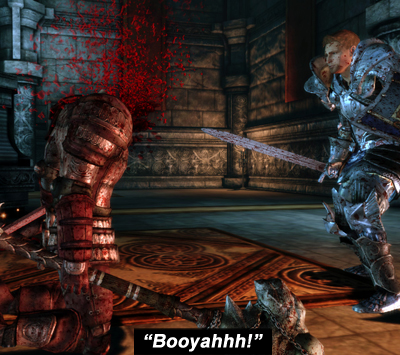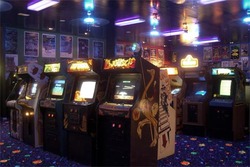 The landscape of video games is changing. It has been happening for quite a while now: slowly at first, but growing in momentum as time goes on. The shift from physical media to digital-only distribution allows for an unsurpassed level of convenience, but what are we giving up in the transition?
The landscape of video games is changing. It has been happening for quite a while now: slowly at first, but growing in momentum as time goes on. The shift from physical media to digital-only distribution allows for an unsurpassed level of convenience, but what are we giving up in the transition?
When I was younger a "Video Game" was a large wooden monolith that sat prominently in the lobby of the pizza parlors and arcades in my neighborhood. The colorfully painted cabinets waited there, beckoning potential players with their glowing phosphors and gulping down quarters with hungry blips and beeps. Like the movies of the same era, playing video games was a destination activity; you just couldn't get the arcade experience at home. In order to play video games you had to grab a handful of quarters, strap on your Reebok high-top sneakers, and ride your BMX bike to the corner arcade. With VCRs still mostly a luxury item and home consoles featuring painfully basic graphics, the idea of owning a movie or an arcade game wasn't really plausible at the time.
However, in a few short years both video games and movies saw a dramatic shift that changed the way people thought about media in general. The VCR's wide acceptance changed watching movies from a destination activity to an experience that people could actually buy and take home. In the same vein, video game consoles that could approximate the arcade experience found their way into the homes of a new generation - and arcades began to atrophy in direct proportion. People could now own and collect the games they loved, display them proudly on the shelves, and revis it them whenever they wanted to.
it them whenever they wanted to.
This new business model offered freedom for individuals, but became a thorn in the side for game developers and publishers. Because games could now be owned, they could also be copied - and with the advent of the internet, widely distributed. The handful of bootlegs that afflicted the industry during the arcade years were fairly small compared to the number of digital copies that could be disseminated using the power of the internet. The Digital Rights Management (DRM) systems that had attempted to thwart copying software on computers ("Don't Copy That Floppy!"), evolved and continued to be integral in the cat and mouse game between game developers, and software crackers. The original methods, which protected the software by tying it to the physical media it was printed on, evolved into protecting the data itself through advanced cryptographic systems.
As the internet becomes more ubiquitous, with information freely moving through the very air around us and harnessed by devices in our pocket that would have been science fiction 15 short years ago, people are embracing convenience over ownership. The games that are purchased through the iPhone are not tied to a physical media; they exist entirely as information - and DRMed information at that. Steam, PlayStation Network, and Xbox Live all serve DRM content at the push of a button, with immediate results. Like rats in Skinner's Box, as consumers we push the download button and receive an immediate reward. As a consumer I appreciate this age of convenience, but are we trading away our children's heritage?
The period of time between the fall of the roman empire and the Renaissance is known as the "Dark Ages". The amount of literature and written history about this time is vary scarce, leaving historians in the dark about much of what occurred during these centuries. By embracing digital only content protected with DRM, are we creating our own Dark Age of Video Games? The majority of DRMed 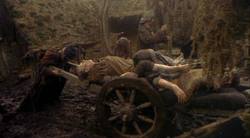 content we buy today is tied to a particular account or device. When those devices break and the companies distributing the game shut down their servers or go out of business, what will happen to our games?
content we buy today is tied to a particular account or device. When those devices break and the companies distributing the game shut down their servers or go out of business, what will happen to our games?
This concern is more than just personal. When my kids grow up to be my age, I want to share with them the games that have meant the most to me over the years. Will these digital-only games become no more than ghost stories passed down to younger generations; Phantoms that cannot be truly experienced because they have vanished through the unstoppable progression of technology? I will certainly be able to share the games of my own childhood. While the arcades from 30 years ago may be gone, the games live on. If I want to play Ms. Pac-Man, I can turn on the physical arcade cabinet that lives in my game room, or visit one of the arcade museums that preserve our gaming past. If I want to revisit Atari 2600 games, or my Nintendo Entertainment System games, I just place the games into my console; and if my console breaks, I can use those same games in another one. This is not the case for the new digital media. Once the devices and services that offer them are defunct, the games themselves will fade into oblivion - or in best case, be sold to us again and again by the publishers on each new electronic device that makes its debut.
I am expecting a new baby daughter in June. I want to share with her my love for games, but more importantly, I want her to be able to share her own childhood gaming experiences with her children decades from now. But, with the way game distribution is heading, I'm not sure that she will have that opportunity, which saddens me. As a game developer myself, I want my games to live on, to be experienced by future generations and proudly kept as mementos on shelves. Somehow this new crop of digital only games seems to marginalize the value of games a bit. There is nothing there to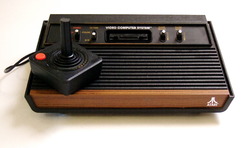 physically hold, treasure and keep on the shelves for a rainy day. Most digital-only games are bought for less than the cost of a cup of coffee - and discarded just as quickly. It pains me to think of a future where video games are as disposable as the cheap toy in a Happy Meal.
physically hold, treasure and keep on the shelves for a rainy day. Most digital-only games are bought for less than the cost of a cup of coffee - and discarded just as quickly. It pains me to think of a future where video games are as disposable as the cheap toy in a Happy Meal.
My video game collection has great value to me. It's exists, not just as a vehicle to visit the past, but as a window into our own cultural history. Regardless of your stance about whether video games are an art form, it can't be denied that they have a very real, very prominent, lasting influence on our society. As a culture, we are shocked at the thought of burning books and permanently censoring the art and information that lies within, yet by embracing digital only DRMed content, we are effectively throwing it into the fire pit to feed the flames.
To have faith that the games will persist through developers and publishers is also dangerously optimistic. I have worked for several developers where the source code to older games has been lost through the many closures, restructures, and sales that have become all to common in the industry. And even when the code is readily accessible, publishers often find a way to "add value" to games by changing or remastering them. This can be compared to the current state of the movie Star Wars. In the memorable cantina scene, Han Solo talks to the bounty hunter Greedo, and shots are fired. Even though all recent copies of the movie have Greedo shooting first, that isn't the way the movie was originally filmed. Luckily, with physical media, there is still a tangible record in the VHS tapes of old that Han Solo was a much more nuanced character than his remastered alter-ego would suggest. With games living entirely in the digital, details like this can be changed in our favorite games as well, except with no physical media, the original version will be lost to the ages and exist only in our faltering collective memories.
character than his remastered alter-ego would suggest. With games living entirely in the digital, details like this can be changed in our favorite games as well, except with no physical media, the original version will be lost to the ages and exist only in our faltering collective memories.
Now it may seem like I should be standing on the side of the road with a cardboard sign proclaiming the end of the world, but in reality I embrace the strides that a global network has made in enhancing video games. I have made a career out of utilizing the internet to allow people to interact, create communities, and explore new forms of interactivity in games; experiences that would have been impossible without an Internet. With this new medium, games are reaching people of all demographics, by bringing the video game stigma out of the basement and onto the streets. I love games, and when you love something you also worry about it. It is with these feelings that I cautiously step forward into the new digital gamescape that we are creating. It's incredibly exciting to experience such a quickly changing frontieer, but at the same time, I don't want to trade a lifetime of enjoyment for a fleeting moment of convenience.
I don't think we have to settle for one or the other, though. Developers and publishers are still working out the logistics of this shift in distribution and experimenting with different models. For example, Sony's new PlayStation Vita handheld is offering content on both physical media and through digital-only distribution, which is a great compromise for convenience and conservation. While the physical media may have copy protection built into it, the games will still be playable in the future, even when the Vita hardware is no longer supported.
Still another model is being embraced by game developer Double Fine in their recently launched Kickstarter project for "Double Fine Adventure", which will be available through DRM based digital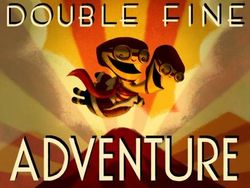 channels, but also as a DRM free digital copy. Even with a digital-only model, the lack of DRM will allow the game to persist. As a direct result, I will not only be able to show my daughter the wonderful adventure games of my youth such as Maniac Mansion and Monkey Island, but I will be able to show her the digital game released on the year of her birth, because Tim Schafer and Ron Gilbert were cognizant of the importance of games without DRM and offered a distribution model that will allow their new game to sit along side their current classics for years into the future..
channels, but also as a DRM free digital copy. Even with a digital-only model, the lack of DRM will allow the game to persist. As a direct result, I will not only be able to show my daughter the wonderful adventure games of my youth such as Maniac Mansion and Monkey Island, but I will be able to show her the digital game released on the year of her birth, because Tim Schafer and Ron Gilbert were cognizant of the importance of games without DRM and offered a distribution model that will allow their new game to sit along side their current classics for years into the future..
The industry is still in largely uncharted waters, and I expect much change in the next few years, but I hope that more developers will follow Schafer's lead and take steps to ensure that we don't blindly embrace content with a DRM time-bomb. By keeping conservation in mind and demanding content that will persist, we can avoid a Dark Age of Video Games.
Am I preaching to the choir, or completely insane? Let me know your thoughts in the comments section.
 Friday, July 10, 2015 at 01:44AM
Friday, July 10, 2015 at 01:44AM  This game is a blast. I'll be writing (probably a lot) more about it soon and likely posting a gazillion videos, but now that the online servers are up and stable, I thought I'd share my first online goal. Actually, this was technically my second goal, but my first was one that made the score 1-8 with my team losing and I forgot to hit the [Share] button. This one tied the game and we went on to win, so I'm going pretend the other didn't happen. If you want to play some Rocket League with me, I'm Armchairdan on PSN (1. PSN really needs to let people change their usernames 2. Armchair Empire R.I.P.). Add me and we will play. I swear I rarely yell GOOAALLL!!! at the top of my lungs with the microphone on.
This game is a blast. I'll be writing (probably a lot) more about it soon and likely posting a gazillion videos, but now that the online servers are up and stable, I thought I'd share my first online goal. Actually, this was technically my second goal, but my first was one that made the score 1-8 with my team losing and I forgot to hit the [Share] button. This one tied the game and we went on to win, so I'm going pretend the other didn't happen. If you want to play some Rocket League with me, I'm Armchairdan on PSN (1. PSN really needs to let people change their usernames 2. Armchair Empire R.I.P.). Add me and we will play. I swear I rarely yell GOOAALLL!!! at the top of my lungs with the microphone on.






